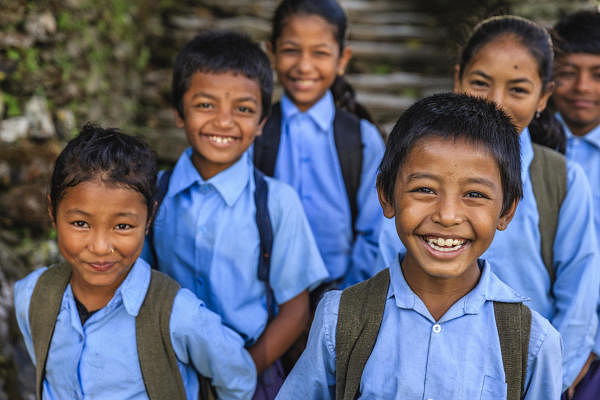
"I am happy people are still capable of saying and doing nice things for no reason or benefit," said Katya, my friend at the University of Nebraska-Lincoln, in her Facebook post recently when a random stranger complimented her on her hair. Her hair, for the record, is like a shimmery golden waterfall. But that someone would stop to tell her about it for no particular reason changed her ordinary, hassled morning into a beautiful one.
In a world where everyone is fighting their own battles each day, these tiny pick-me-ups are so important. The good people still seem to outnumber the thoughtless ones, but few of them act thoughtfully. It forces us to wonder whether compassion is becoming a rare commodity. If so, does it make sense to teach people how to be kind and compassionate? And can compassion be taught at all?
Indifference towards others
We live in a world where acts of kindness, that should come organically, are becoming rarer and rarer because care, compassion and kindness are rapidly being replaced by indifference, selfishness and numbing cruelty as we saw in accounts from the recent communal riots in north-east Delhi, and every such situation before.
But other than in extreme situations as well, we see an alarming number of juvenile crimes across the world. And it feels like it is neither enough nor productive to simply blame these instances on changing social dynamics, exposure to violent media, lack of sufficient socialisation with those who are ‘different’ from us, among other factors. While all of these are important, are we doing anything to change things?
That something is actually being done was brought home during my exposure to teaching in the United States during the last three years. The answer to my question: "How many of you have done any community service? Raise your hands!", had me speechless. Every student raised their hand. Turned out that they had mandatory community service at school. They had helped out at numerous places like public libraries, soup-kitchens, outreach programs, old-age homes, orphanages and could empathise with the less fortunate. The result was that I was looking at an amazingly sensitised, compassionate group of undergraduates. What a huge shot of pure hope it was!
The other takeaway was that thoughtfulness can indeed be taught, inculcated and encouraged. In the current socio-political climate when barbaric crimes, often led and fed by fundamentalism, have become part of the ordinary news cycle, it appears to be the most important thing that we as parents and teachers should be doing. The mandatory good, preachy stories across curricula don’t seem to be really working. Not just because the focus is still on cramming and scores – and the inherent competition and stress it stokes – but also because such overt didacticism can actually be off-putting to children.
Teaching kindness
Contrast reading a goody-goody story to using Orly Wahba’s famous 'kindness cards' in any class. This former teacher (the force behind the non-profit organization ‘Life Vest Inside’) distributed these 'random acts of kindness' cards which ask you to perform and pass on an act of kindness, mentioned on the card, to start the kindness ripple-effect. They instantly get one to engage in and spread kindness. Wahba says about her own efforts at 'teaching' kindness that she has "used, tested and experienced" how that changed lives. Innovative and interesting activity-based classes without the stress of competition is one way of inculcating kindness in the curricula, which in turn will help foster a habit until it becomes second nature.
When we speak of education as the building-block of character we cannot leave compassion out. The Happiness classes in Delhi government schools can actually show the way to include compassion in the curriculum. Just like these popular classes, the kindness curriculum should be activity-based so as not to add to the existing burden of studies. Kindness cards, activities like helping at home, putting out water and food for strays and birds, can be some of the ways to build compassion.
To reiterate, inculcating kindness is as essential as ensuring high scores. We needn’t look further than Mahatma Gandhi who felt that "literary education is of no value if it is not able to build up a sound character." This is the same principle that is behind the Happiness classes. Kindness might be the one strong glue which can put together our ripping social fabric, stretched thin and fraying due to our increasing inability to empathise with those different from us.
We actually can start right away, in our homes and within our families, it is that simple. And as Wahba says, "The greatest accomplishments are not awards and accolades but the lives of the people who we’ve touched with our kindness." If we agree that education is "what remains after we’ve forgotten all that we learnt in school" (BF Skinner), our schools can ensure that kindness remains one of those things that none of our children forget and keep the ripple-effect expanding.
(Madhumita Gupta is a freelance writer, children's author and an independent teacher-trainer)
Disclaimer: The views expressed above are the author’s own. They do not necessarily reflect the views of DH.